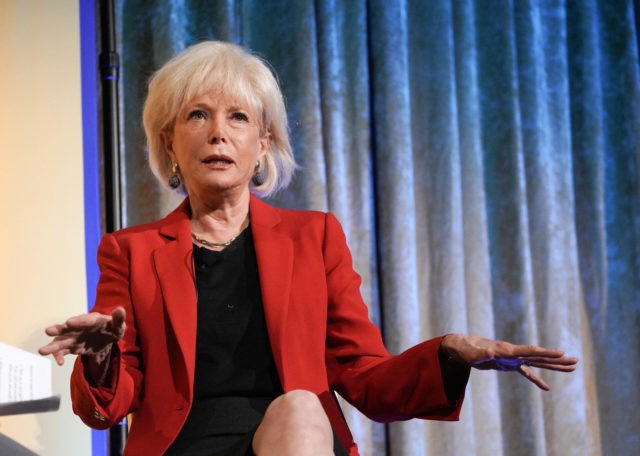Lesley Stahl falsely claimed in her “60 Minutes” interview with President Trump that unemployment claims were rising.
“This time you have kind of double-migraine. You have unemployment claims going up and you have covid cases going up. I mean, it’s like the gods have suddenly decided to conspire against you,” Stahl said.
In fact, unemployment claims were falling. While first-time claims for unemployment were initially reported as rising last week, continuing claims fell by more. While continuing claims are reported with a week’s lag, what was really happening in the economy was that more people were coming off unemployment than going on to it.
What’s more, that rise in initial claims turned out to be illusory. This week the Department of Labor revised last week’s figure to show a small decline in claims, although that revision came out after the “60 Minutes” interview.
Stahl could not have known that the initial claims number would be revised down but ordinary prudence would have counseled against claiming evidence of divine intervention based on one-week’s preliminary claims numbers. Initial claims have fallen for seven of the previous nine weeks. The unemployment rate has fallen for five consecutive months.
Donald Trump posted a version of the interview to Facebook on Thursday.
Later in the interview, Stahl claimed without evidence that the president was lying when he claimed the pre-covid U.S. economy was the best in history.
“We created the greatest economy in the history of our country,” Trump said.
“You know that’s not true,” Stahl said.
“It is absolutely true,” Trump said.
“No!” Stahl growled.
“The lowest unemployment numbers. The best employment numbers, 160 million people working. Highest stock market price,” Trump said. “The unemployment numbers for African Americans, for Hispanic Americans, for Asian America, for everybody were the best.”
Whether the economy really was the best in history is a subjective judgment. But there’s a strong case for Trump’s claim. Unemployment was at or near record lows for many segments of the population, working-class wages were rising at faster pace than they had in years, and economic growth was strong enough that the Fed had embarked on plan to raise its interest rate target. While growth has been faster in some periods of our history, it was well above what the Fed considered the long-term normal.
Some might think the economy was best during the Clinton era or the Kennedy years. A strong case can be made for the economy of Calvin Coolidge’s administration. Stahl’s decision to accuse the president of lying about his own opinion of the economy—and insistence on debating him further—indicates that she was either misinformed or asking questions in bad faith. Instead of interviewing the president, she decided to debate him on a matter of opinion and judgment.
Correction: An earlier version of this story misspelled Ms. Stahl’s first name.

COMMENTS
Please let us know if you're having issues with commenting.